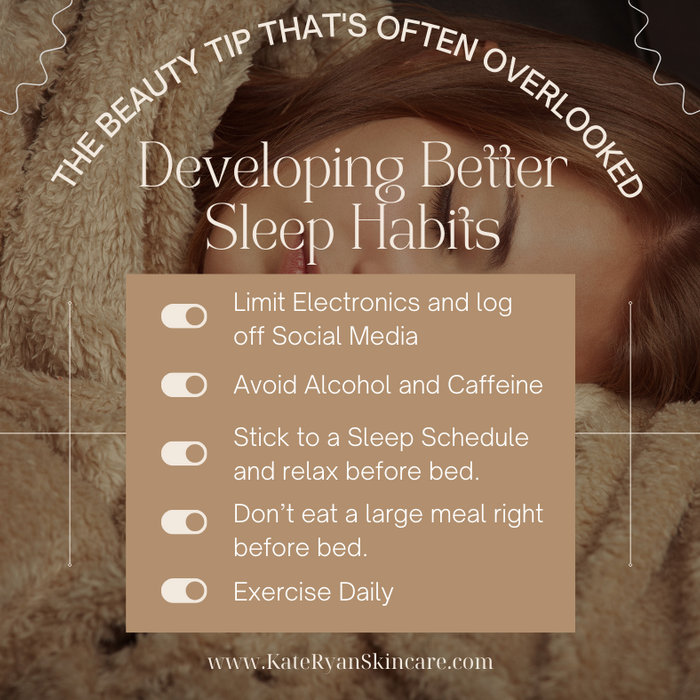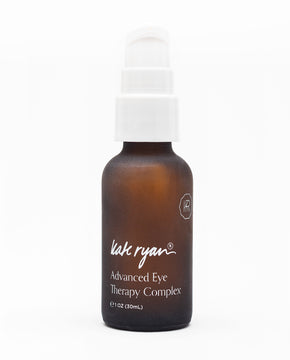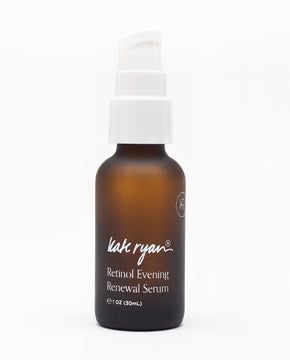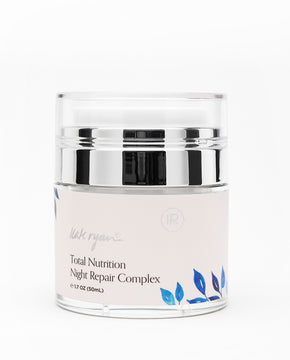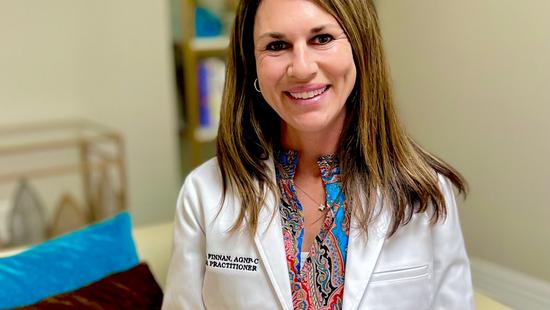The holidays are exhausting.
Yep, I said it. For most of us, that statement is reality. As much as we love the holiday cheer, memories, traditions, gift giving (and receiving), parties and gatherings, movies, cookies, etc., the holidays also cause physical and emotional fatigue.
We wouldn’t have it any other way, but we still would appreciate an opportunity to make up for all the sleep we missed over the last several weeks.
While we want more rest and sleep, January is typically when we want less.
- Less food
- Less late nights
- Less social obligations
- Less alcohol
It’s generally a time to put an end to overindulging. As we attempt to break unhealthy habits, we may simultaneously try to create new healthy habits.
Exercise more, eat better, consume less alcohol, plan and make more home-cooked meals - you don’t need us to list the most common resolutions!
This year, it may be time to break free of the regular resolutions and focus on something outside the box - that has all sorts of health benefits. DEEP SLEEP!
DEEP SLEEP!
While you may have chuckled a bit (or a lot) when you read those two words, I encourage you to hear us out. We aren’t talking about more sleep - although we’d certainly welcome it. Instead, we are talking about the quality of sleep and working toward creating better sleep habits and patterns that will lead to more deep sleep.
What does sleep have to do with skincare?
DEEP SLEEP is the most underrated beauty tip!
Why is sleep important?
According to this article on the National Institute of Health (NIH) website, “Sleep is as important for good health as diet and exercise. Good sleep improves your brain performance, mood, and health. Not getting enough quality sleep regularly raises the risk of many diseases and disorders.”
The Journal of Clinical Sleep Medicine refers to sleep as a “biological necessity.” Similarly, the American Academy of Sleep Medicine says, “Sleep is essential to health.”
In children and teens, sleep is vital for growth and development. Sleep helps keep the body and mind healthy in people of all ages.
Did you know your brain works while you sleep? Here are a few things the brain does while you are asleep:
- Prepares for learning, remembering, thinking, reacting, and creating memories
- Drains toxins from the brain
- Enacts repair processes for bodily systems, including the immune system
- Supports healthy brain function
Just as getting enough sleep is important for your health, not getting enough sleep can harm your health. Following are some of the negative impacts caused by sleep deprivation:
- Difficulty concentrating
- Harder to respond quickly and make good decisions
- Increased risk of cancer, cardiovascular disease, diabetes, depression, high blood pressure, infections, and obesity
- Higher levels of the hormone that controls hunger
- Decreased ability to respond to insulin
- Detrimental impact on mental health and mood
What are some good sleep habits?
Developing good sleep habits is key to getting more high-quality, deep sleep. While medical conditions and sleep disorders make it a major challenge to get good sleep, there are simple things you can do to help increase the likelihood of a good night’s sleep.
Simple Ways to Create Good Sleep Habits
Stick to a sleep schedule.
Ideally, you should have the same weekday and weekend schedule. This means you go to sleep and wake up at the same time, regardless of the day. (Admittedly, this is easier said than done!)
Exercise daily.
Here’s one more reason to find time to exercise! However, try not to exercise right before bedtime as that can make it more difficult to fall asleep.
Avoid caffeine and alcohol.
Did you know the effects of caffeine can stay with you for up to eight hours? If your normal bedtime is 10:00 pm, you should consume your last caffeinated beverage before 2:00 pm. Alcohol also disrupts sleep patterns because it negatively affects REM sleep (the deepest sleep) and can cause you to wake up and not be able to fall back to sleep.
Don’t eat a large meal right before bed.
Eating a lot, especially heavy or spicy foods, worsens sleep by interfering with digestion and increasing the risk of heartburn and indigestion.
Limit electronics before bed.
Electronics cause the brain to suppress melatonin production, making it difficult to fall asleep. A study of university students discussed here found that longer use of electronic devices before bed is associated with poorer sleep quality. The general recommendation is to put the electronics away one hour before bed.
Use a sleep spray to help you feel more calm and relaxed.
By regularly using a sleep spray before bed, your brain associates the scent with rest and sleep. Kate’s Sweet Dreams Sleepy Pillow & Linen Spray uses an aromatic blend of calming essential oils to evoke serenity and tranquility.
Remove distractions like light, heat, electronics, and noise.
These distractions can act as disturbances that increase stress and make you lose sleep. Dim the lights as you get ready for bed. If possible, keep your bedroom cool. Use a sound machine or the sound of a fan to decrease noise. Put your phone in another room or turn off the ringer and notifications.
Relax before bed.
Develop a relaxation routine - and try to stick to it. For example, start by shutting down your phone, computer, tablet, and TV. Dim the lights. Do your nighttime skincare routine and brush your teeth. Lay out your clothes for the next day. Listen to a meditation, do restorative yoga poses, or read a book.
Don’t lie in bed awake.
If you aren’t asleep after 20 minutes, get up and do a relaxing activity (away from your bed) until you feel sleepy. For example, read a book, do yoga poses, meditate, etc.
You do not have to make all of these changes at once! Some are small and may be easy to incorporate into your life. Others will take some time to get used to. But all of them are worth a try!
Is there something you do to relax before bed that you did not find on this list? Please share in the comments! Some of us need all the help with deep sleep we can get! Suggestions for better sleep are always welcome.
How does getting enough sleep benefit the skin?
Getting enough sleep - particularly deep sleep - offers many direct benefits for your skin.
An NIH study, Does poor sleep quality affect skin aging?, found that good sleepers had lower skin aging scores and greater skin barrier recovery than poor sleepers.
1. While you are sleeping, your skin is working to heal itself. If your skin looks its best and brightest first thing in the morning, this is why!
2. Studies show that you are more likely to have clearer skin when you sleep more. Not enough sleep leads to stress (or vice versa), and stress leads to more breakouts.
3. Sleeping stimulates healthy blood flow to the skin. Likewise, a lack of sleep may cause skin tone to appear more washed-out or uneven.
4. Although dark circles can be hereditary, they can look less dark with more sleep.
The same NIH study discussed above found that “good sleepers also reported a significantly better perception of their appearance and physical attractiveness compared with poor sleepers.” Confidence in your appearance may be reason enough to focus on getting more deep sleep!
What skincare products work best at night?
Based on their ingredients, some skincare products are recommended for use at night. Retinol, for example, can make the skin more sensitive to UV radiation, so we suggest including products that contain retinol as part of your nighttime skincare routine.
Here are five Kate Ryan Skincare products intended for use in the evening:
Retinol Evening Renewal Serum is an anti-aging product that gently renews the skin's surface each night, so you wake to improved skin tone, fewer lines, less visible pores, minimized scarring, smoother texture, and overall protection from skin aging.
Total Nutrition Night Repair Complex, which contains Retinol, offers a powerful combination of nutrients and antioxidants to repair damage, boost collagen production, regenerate skin cells, reduce wrinkles, hydrate, exfoliate, and more.
Vitamin C Night Repair Serum has an emollient texture for evening use and works to decrease hyperpigmentation, increase collagen production, promote a brighter complexion, and reduce fine lines and wrinkles.
Advanced Eye Therapy Complex is a multifunctional approach to improving eye area concerns such as puffiness, dark circles, fine lines, wrinkles, loss of elasticity, dry skin, and more. Plus, when you wake up, your eyes look and feel refreshed.
Sweet Dreams Sleepy Lavender Pillow & Linen Spray contains a blend of essential oils for calming and relaxation, so it is the perfect scent as your head hits your pillow. When used regularly at bedtime, your brain will associate the smell with rest and sleep.
Please let us know if you are on board with our Deep Sleep for Your Skin Resolution for 2024! We would love to hear your tips for deep sleep. We want to know what works for you - and what doesn’t. Also, what does your nighttime routine look like? Are you struggling to turn off your electronics early enough? Have you given the Pillow Spray a try? Keep in touch! As we said above, we need all the deep sleep advice we can get!
If you could use assistance coming up with an evening (or morning) skincare routine, please send an email to hello@kateryanskincare.com. We are always happy to answer questions, provide product information, and offer recommendations based on your skin type.
Jennifer

